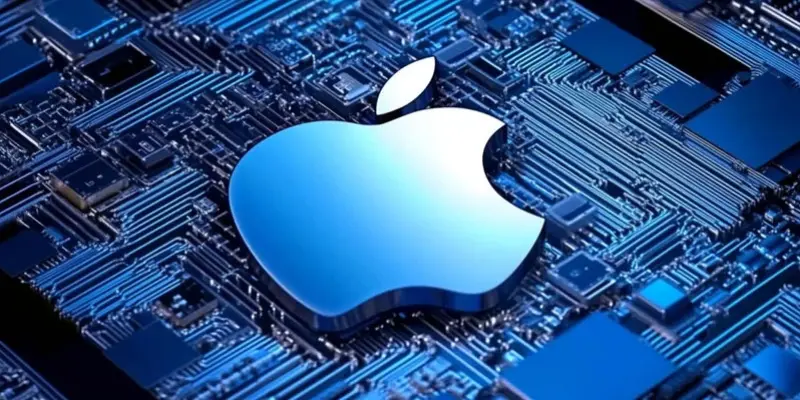In light of recent revelations, the latest security concerns specifically targeting Apple silicon devices have brought to light significant vulnerabilities in modern processors. Researchers from the Georgia Institute of Technology and Ruhr University Bochum unveiled two new speculative execution exploits named SLAP (Data Speculation Attacks via Load Address Prediction) and FLOP (Breaking the Apple M3 CPU via False Load Output Predictions), which target web browsers such as Safari and Google Chrome on Apple silicon devices. These findings underscore the ongoing challenge of balancing performance optimization with security in advanced processors.
Speculative execution, an essential performance optimization feature in modern processors, is designed to predict control flow and execute instructions ahead of time. When these predictions are correct, they enhance processor efficiency significantly. However, when a misprediction occurs, the speculative instructions must be discarded. Despite this discarding, traces of these instructions linger within the CPU, which can be exploited through sophisticated side-channel attacks. This issue is at the heart of the new SLAP and FLOP exploits identified by the researchers.
Focusing particularly on Apple silicon’s Load Address Predictor (LAP), SLAP attacks affect the M2, A15, and newer chips. LAP is responsible for predicting the next memory address by analyzing prior access patterns. However, should LAP predict incorrectly, it can execute arbitrary computations on out-of-bounds data, inadvertently granting attackers access to sensitive information. These attacks can reveal private data such as emails or browsing activity. On the other hand, FLOP targets the Load Value Predictor (LVP) of the M3, M4, and A17 chips. By guessing data values returned by memory, FLOP can bypass crucial memory safety checks, presenting avenues to leak sensitive data like location histories, calendar events, and even credit card details.
Speculative Execution and Its Implications
Speculative execution mechanisms, although designed to enhance processor performance, have been found to introduce significant security vulnerabilities. The recent SLAP and FLOP attacks highlight how these mechanisms can be exploited to extract sensitive information, posing serious risks to user privacy and security. These vulnerabilities extend beyond the previously known Spectre and iLeakage attacks by targeting not just the predicted control flows but also the data flows. This shift in focus broadens the scope of exploitation and presents new challenges for designing secure processors.
Extending this analysis, researchers from Korea University have also highlighted the persistent security issues rooted in speculative execution flaws. They presented SysBumps, an attack that breaks kernel address space layout randomization (KASLR) on macOS by exploiting Spectre-type gadgets in system calls. This reinforces the idea that current CPU architectures, particularly those found in Apple silicon, are repeatedly vulnerable to speculative execution attacks and the broader category of side-channel attacks.
To further complicate matters, recent academic research shows that combining multiple side-channels can circumvent existing mitigations when targeting the kernel. The use of address space tagging, intended to mitigate side-channels, has inadvertently opened new attack avenues. One practical demonstration cited is TagBleed, which leverages tagged translation lookaside buffers (TLBs) to effectively derandomize KASLR, overcoming the protections currently in place. This complexity emphasizes the necessity for a comprehensive reevaluation of how security measures are integrated into processor designs, especially in light of these nuanced and multifaceted vulnerabilities.
Broader Impact and Future Directions
Recent discoveries expose major security flaws in Apple silicon devices, highlighting vulnerabilities in modern processors. Scholars from Georgia Institute of Technology and Ruhr University Bochum identified two critical speculative execution exploits called SLAP (Data Speculation Attacks via Load Address Prediction) and FLOP (Breaking the Apple M3 CPU via False Load Output Predictions). These exploits target browsers such as Safari and Google Chrome on Apple silicon devices, showcasing the delicate balance between optimizing performance and maintaining security in advanced processors.
Speculative execution, key for boosting modern processor efficiency, predicts control flow to execute instructions ahead of time. If these predictions are accurate, efficiency improves greatly. However, incorrect predictions lead to discarded instructions that leave traces within the CPU. These remnants can be manipulated through advanced side-channel attacks, pivotal in the SLAP and FLOP exploits.
Specifically, SLAP exploits target Apple silicon’s Load Address Predictor (LAP), impacting M2, A15, and newer chips by predicting the next memory address based on past access. Incorrect LAP predictions can lead to unauthorized computations on out-of-bounds data, allowing attackers to access private data like emails or online activities. FLOP targets the Load Value Predictor (LVP) in M3, M4, and A17 chips, guessing data values from memory and evading crucial safety checks, thus risking exposure of sensitive information such as location, calendar events, and credit card details.

